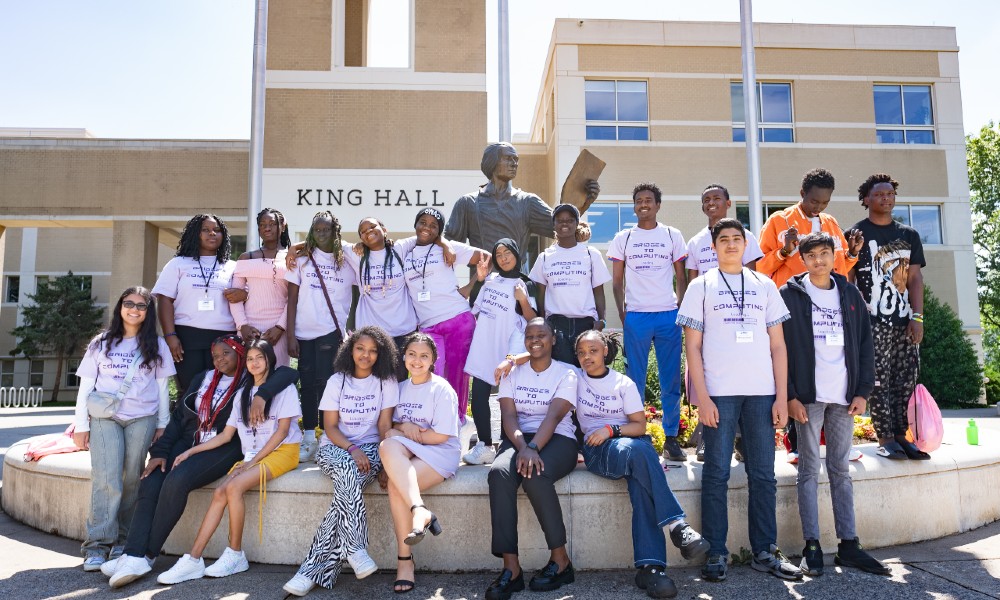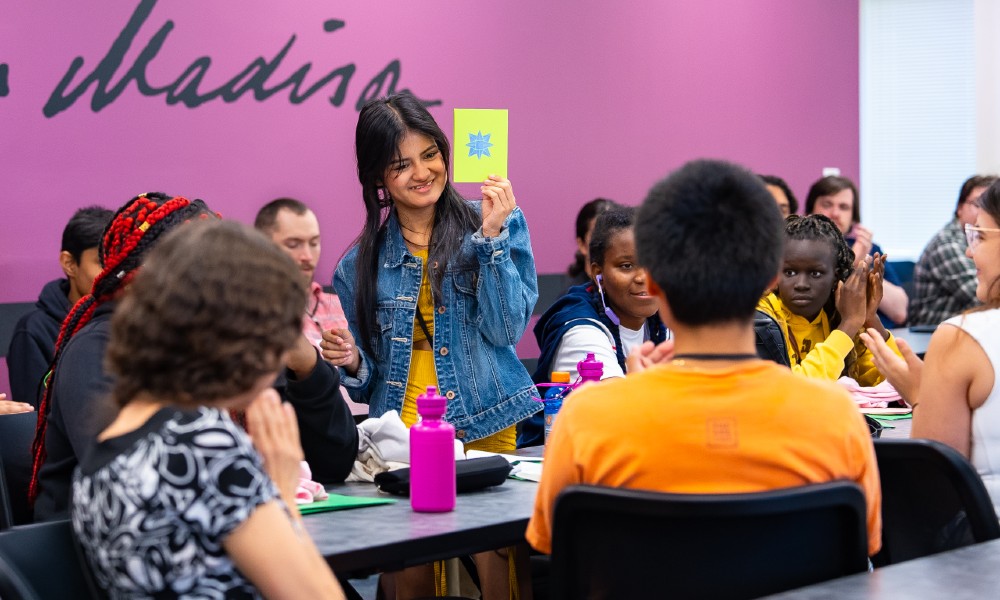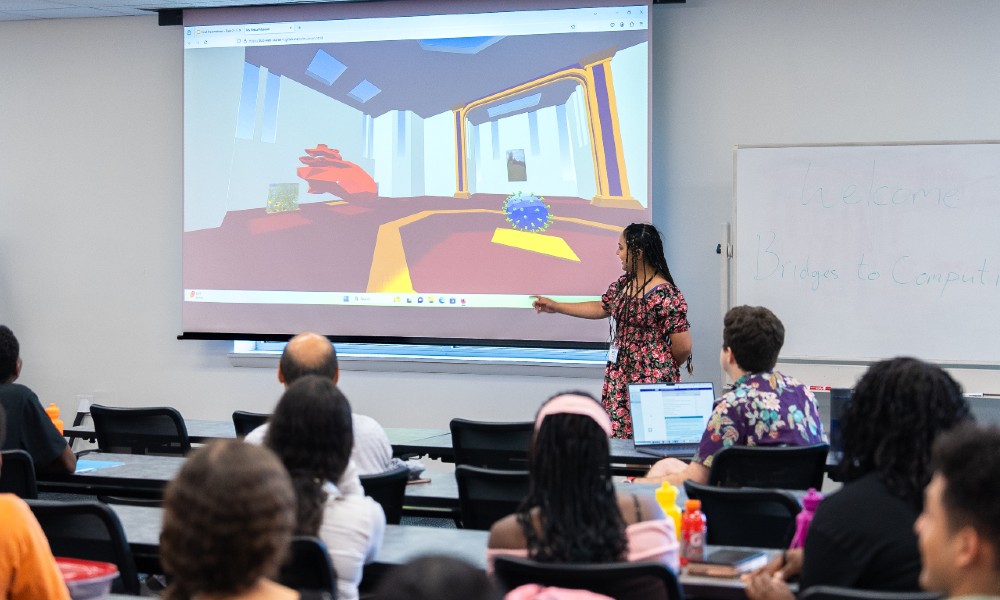Empowering local refugee students through technology
News
SUMMARY: The Bridges to Computing Camp is an annual week-long program hosted by JMU’s Computer Science and Information Technology programs, designed to introduce and engage local refugee students in computer science. The camp fosters learning, creativity, and personal growth through various tracks, helping students envision themselves in a college environment and prepare for future studies and careers in technology.
The Bridges to Computing Camp, newly named to reflect its mission of connection and empowerment, successfully concluded its sixth year in June. Organized in collaboration with Church World Service (CWS) Harrisonburg Immigration and Refugee Program, the camp provides an exciting opportunity for local refugee students to enhance their computer science and information technology skills while experiencing a college environment.
This year, 25 students from grades 8-12 attended the camp, representing diverse backgrounds and languages, including Arabic, Swahili, Urdu, Dari, Kinyarwanda, Tigrinya, Spanish, and Portuguese.
Under the guidance of Computer Science (CS) and Information Technology (IT) faculty, the camp featured three computing tracks: Twoville, Web + VR, and the newly added advanced track in applied computing.
Twoville introduced students to the fascinating mathematics and computation behind two-dimensional design. Participants sketched their designs on paper, translated them into Twoville code, and created physical artifacts like stickers, cards, T-shirts, and plywood sculptures. “Twoville is my research project,” said CS professor Chris Johnson. “It's software that lets students create two-dimensional designs using coding and mouse manipulation. They can blend their art experiences, cultural symbols, and math to make tangible objects.”

The Web + VR track built upon students’ knowledge of HTML and VR development. Students created personal photo gallery websites, virtual worlds, and immersive 3D art museums using the web framework A-frame. The applied computing track introduced students to Python, mobile app development using MIT App Inventor, and interactions with Finch robots and IoT devices.
“Watching the faculty and teaching assistants engage with the students and celebrate each new coding technique they mastered was incredibly rewarding,” said IT advisor and camp director Ellen Hedrick.
Ozi Valdez, CS teaching assistant, connected with Spanish-speaking students in their native language. “We had deep conversations about our personal lives and experiences,” he said. “These moments of vulnerability helped me form genuine connections with the students.”
The camp concluded with a showcase during which students presented their projects to peers and the JMU community. These presentations often reflected the students’ passions and experiences, with some honoring favorite athletes, discussing career plans, or making gifts for family members.

“The engaging projects and supportive atmosphere created by the organizers made a significant impact on the kids, some of whom are now entering JMU from Blue Ridge Community College,” said Rebecca Sprague, CWS youth and employment program coordinator.
JMU’s Computer Science Department is the 2024 winner of CWS Harrisonburg’s Youth STEM Partner of the Year, a testament to its commitment to fostering diversity and inclusion in STEM education. “The dedication and effort of the team are making a real difference in these young lives,” said Sprague.
